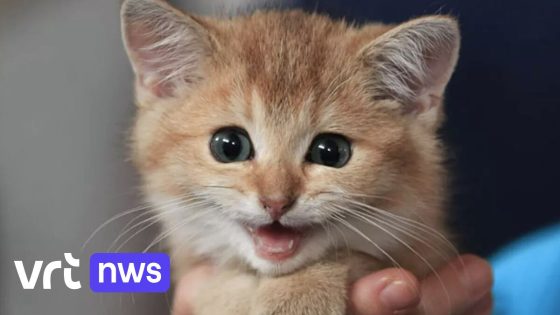On February 5, 2025, the Scottish Animal Welfare Commission raised alarms about the impact of cats on wildlife. Their report revealed that cats kill at least 700 million birds and other animals each year in the UK. How can we protect our nature from this threat?
- Scottish Animal Welfare Commission's findings
- Cats kill at least 700 million animals
- Proposed measures to protect nature
- Keeping cats indoors or leashed recommended
- Vaccination and neutering encouraged in report
Understanding the Impact of Cats on Wildlife in Scotland
What if your beloved cat is harming local wildlife? The recent findings indicate that domestic cats are major predators, significantly affecting bird populations. As experts suggest measures for responsible cat ownership, it’s crucial to consider how these actions might also apply globally.
The Role of Responsible Pet Ownership in Protecting Wildlife
Responsible pet ownership can make a difference. Keeping pets indoors or using leashes can help protect vulnerable species from predation. Here are some key recommendations:
- Keep cats indoors during peak bird activity times.
- Consider leash training for outdoor walks.
- Encourage spaying and neutering to control cat populations.
- Vaccinate pets against diseases that could spread to wildlife.
The Importance of Vaccination and Spaying/Neutering Cats
Vaccination and spaying/neutering play vital roles in reducing stray cat populations while ensuring healthier pets. These practices not only benefit individual animals but also help mitigate their impact on surrounding ecosystems. Why should you care? Because every action counts towards preserving biodiversity!
Cats as Predators: Understanding Their Behavior
Cats are natural hunters, driven by instinct rather than hunger alone. This behavior raises questions about how we manage our pets’ interactions with nature. Are there ways to satisfy their hunting instincts without harming local wildlife? Yes! Engaging them with toys mimicking prey can redirect their energy positively.
The Global Perspective: What Can Be Done?
This issue extends beyond Scotland; it resonates worldwide where domestic cats roam free. Countries must adopt similar strategies to address the ecological impacts of pet ownership effectively. Collaboration between governments, animal welfare organizations, and communities is essential for creating sustainable solutions.
In conclusion, addressing the impact of domestic cats on wildlife requires collective action and awareness among pet owners everywhere.































